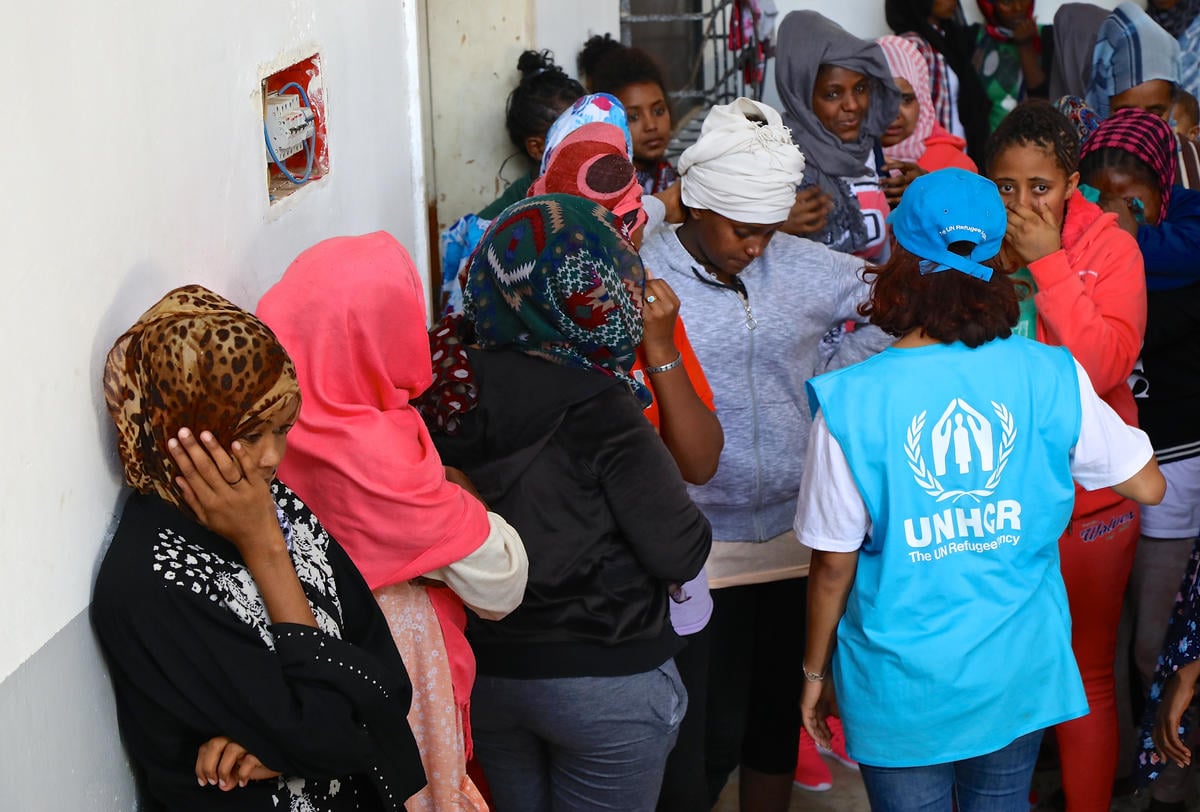UNHCR signs agreement aimed at ensuring refugee protection in Libya
UNHCR signs agreement aimed at ensuring refugee protection in Libya

TRIPOLI, Libya, July 4 (UNHCR) - The UN refugee agency has recently signed an agreement with three organizations aimed at ensuring the protection needs of refugees and asylum seekers in Libya. This is in line with UNHCR's responsibility to advocate for better protection of refugees in the context of mixed asylum and migration flows.
"This is certainly a good step forward," said UNHCR's top protection official, Erika Feller, who in June completed signing the Memorandum of Understanding with the International Organization for Peace, Care and Relief (IOPCR), the International Centre for Migration Policy Development (ICMPD) and the Italian Council for Refugees (CIR).
"Although refugees and migrants often use the same routes and means of transport they do have different protection needs. The increasing cooperation between UNHCR and Libya, and this agreement, is an acknowledgement of this situation and sets out practical ways of working together," said Feller.
The agreement is part of UNHCR's work under its Ten-Point Plan of Action on Refugee Protection and Mixed Migration, which sets out a number of areas where the agency believes initiatives are called for and where it can contribute some expertise in this challenging area.
UNHCR and the other three organizations which signed the agreement will support the Libyan authorities in designing and implementing comprehensive and protection-sensitive asylum management strategies with full respect for international and regional refugee and human rights principles.
They will particularly collaborate on capacity-building, data management, studies/surveys, and voluntary repatriation with the aim of enhancing protection for persons of concern to UNHCR in Libya.
There are currently some 9,000 refugees and asylum seekers in Libya - mainly Iraqis and Palestinians, and also Eritreans, Sudanese, Somalis, Liberians, Sierra Leoneans and Congolese from the Democratic Republic of the Congo.
In June, UNHCR said it was alarmed by credible reports that Egypt had forcibly returned Eritrean asylum seekers.
"We welcome the decision of the Libyan authorities not to deport Eritrean asylum seekers," said Radhouane Nouicer, chief of UNHCR's Middle East and North Africa bureau. "We are aware of the challenges in dealing with mixed flows of irregular immigrants and asylum seekers, and are appreciative of the Libyan government's efforts to address some of these issues in consultation with our office in Tripoli," he added.
Libya is not a signatory to the 1951 Refugee Convention. In the absence of a national asylum system, registration, documentation activities and refugee status determination procedures are carried out by UNHCR Libya.









